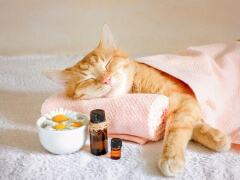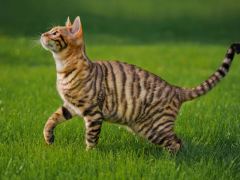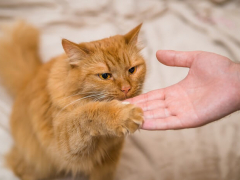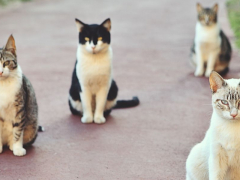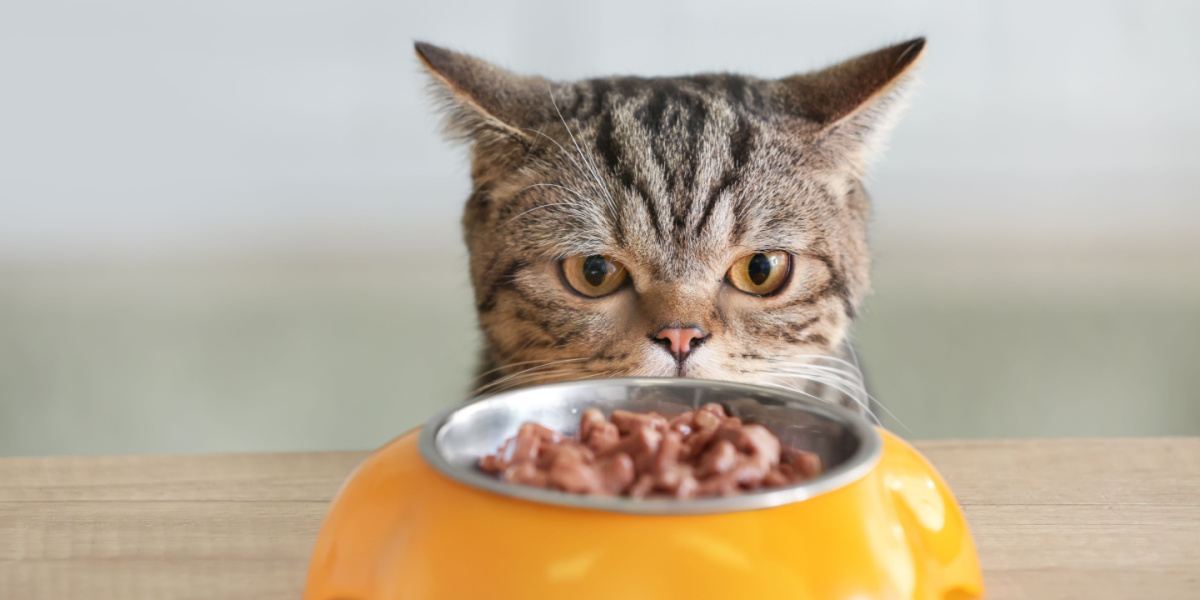
Vitamin C, also known as ascorbic acid, is a household name when it comes to well-known vitamins and is a common health supplement that people take. But do cats need vitamin C?
This article explores that question, as well as what vitamin C is, what it does for the body, information on supplementing vitamin C in cats, and some frequently asked questions.
Also Read: The 8 Best Cat Vitamins And Supplements
Vitamin C is a necessary vitamin for proper bodily functions, and cats produce a sufficient amount of it naturally, unlike humans. Vitamin C supplementation in cats is not necessary, although vitamin C found in pet supplements are probably safe. Giving a cat an excess of vitamin C in large quantities can lead to health problems.Key Takeaways
What Is Vitamin C?
A vitamin is a nutrient needed by the body for certain normal functions to be performed. Vitamins are organic compounds containing carbon, which differentiates them from minerals, which are inorganic.
Vitamin C is vital to processes maintaining healthy skin, bone, cartilage, and blood vessels. It plays an important role in the immune system, acting as an antioxidant to protect cells from damage and supporting other immune functions.
Without vitamin C, a condition called scurvy develops. Scurvy causes a breakdown of bone and cartilage and easier bleeding from the loss of blood vessel integrity and from a poor ability to heal wounds.
Prior to the mid-18th century, sailors on long sea voyages would often suffer from bleeding gums, lost teeth, and non-healing wounds. They finally found relief after connecting the consumption of fresh fruits and vegetables with the prevention of these issues. Although not fully understood at the time, fresh fruits and veggies cured and prevented scurvy because of their high content of vitamin C.
Also Read: Are Fruits And Vegetables Safe For Cats? What Every Cat Owner Should Know
Do Cats Need Vitamin C?
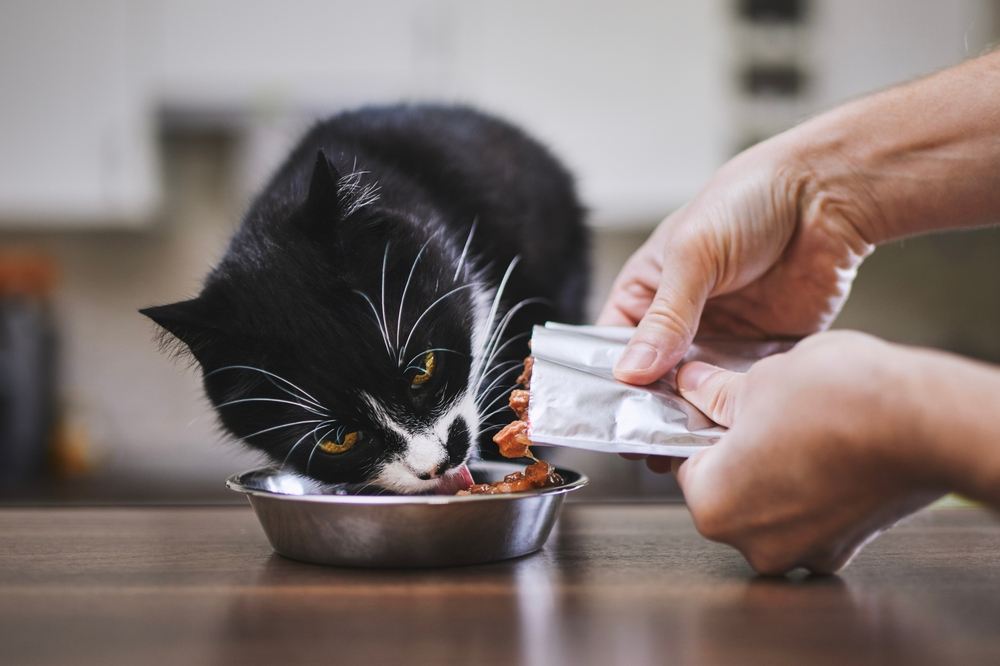
Vitamin C is commonly found in pet supplements.
This brings us to an important question. Clearly, humans need vitamin C. If there’s a deficiency, bad things happen. But this connection wasn’t fully made until the 18th century. So what about other animals? What’s their vitamin C secret?
As it turns out, just about all animals can produce their own vitamin C in sufficient quantities for their body’s normal function. The only exceptions include humans, other primates like monkeys and gorillas, and guinea pigs. All of us in this minority must get vitamin C through our diet.
So while cats do need vitamin C just like most animals do, they are among the many who are able to make their own and do not require it in their diet.
Also Read: The 10 Best Cat Foods In 2023
How Do Cats Get Their Vitamin C?
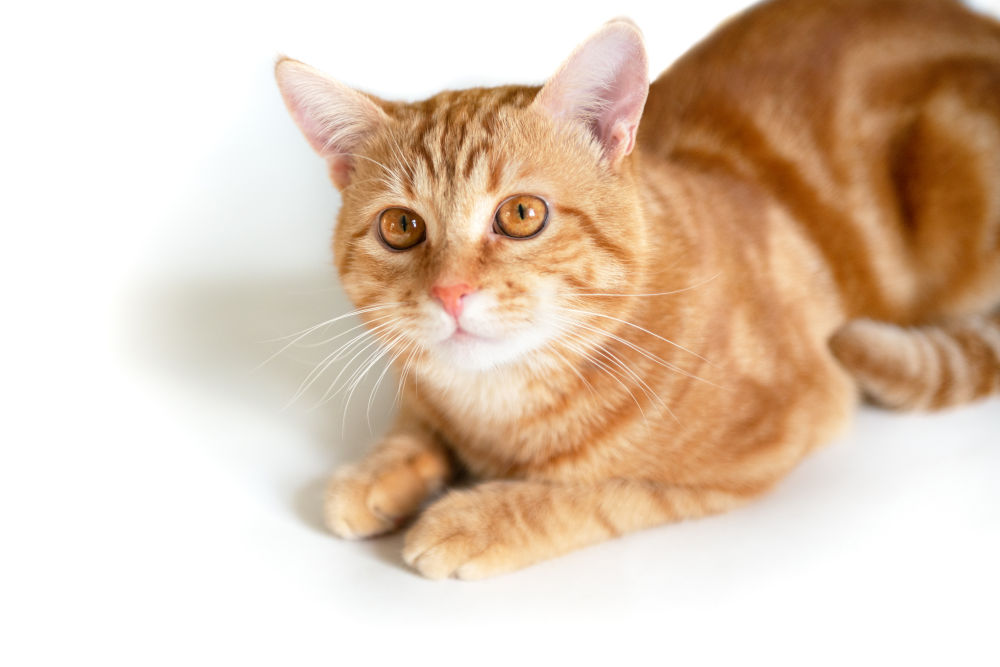
Cats are in the majority when it comes to animals that can produce their own vitamin C. Humans are in the minority.
Like most animal species, cats produce their own vitamin C in their liver. This occurs through a process called the glucuronic acid pathway. Humans, other primates, and guinea pigs lack a single enzyme that allows a form of glucose to be converted through a multi-step chemical process into vitamin C.
Also Read: Digestive Enzymes For Cats: Everything You Need To Know
Are There Benefits To Supplementing Vitamin C In Cats?
Vitamin C is an antioxidant, meaning it has the ability to guard against cell damage. It also provides benefits for the immune system as well.
There are many pet health supplements that contain vitamin C. While vitamin C is a very healthy and important vitamin, there have been no consistent studies or clinical trials that prove supplementing vitamin C to cats has a specific benefit to treat or improve any health condition.
While certain high levels of vitamin C have been shown to be beneficial for people to help their immune systems, this has not been the case for cats. Therefore, no therapeutic dose has been established.
It is hard to say how much benefit there is to supplementing additional vitamin C in cats. Health supplements for cats vary quite a bit, but the vitamin C content in most is probably fine in a majority of cases.
Also Read: Can Cats Eat Oranges?
Are There Side Effects To Supplementing Vitamin C In Cats?
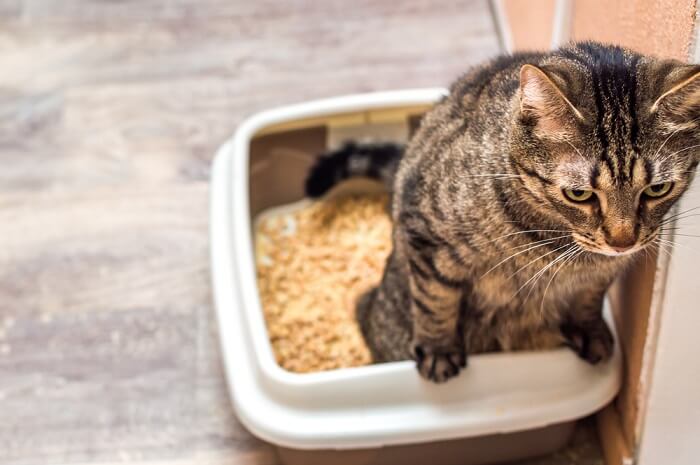
Large amounts of vitamin C in a cat’s diet can lead to painful bladder stones.
Although vitamin C is a vital nutrient for most living things, like almost anything, an excess can be a problem. As laid out in “The A-B-C’s of Vitamin C”, Dr. Deborah Linder of the Clinical Nutrition Service at Tufts University highlights that while vitamin C is an antioxidant at certain levels, it can actually function as a pro-oxidant when present at very high levels. This can lead to cell damage.
Vitamin C is a water-soluble vitamin. This means that any excesses pass into the urine. Because the body eliminates what it doesn’t need, supplementing water-soluble vitamins is generally safe.
But with vitamin C, there is a downside to over-supplementing. Excesses can result in the formation of oxalate in the urine. Oxalate is a substance that doesn’t necessarily cause harm in moderate amounts, but too much of it in the right conditions can lead to urinary bladder stones.
Cats, along with certain dog breeds, are more predisposed to the formation of calcium oxalate crystals and stones. These types of stones typically form in a more acidic environment, which is more typical of cat urine compared to most dogs.
While supplementing a high dose of vitamin C should always be approached cautiously in cats, if your kitty has had any history of urinary crystals or stones, vitamin C supplementation could carry more risks than benefits and should be avoided.
Also Read: The 7 Best Supplements For Cat Urinary Health
Closing Thoughts
Do cats need vitamin C? They certainly do, but fortunately, they make their own in very sufficient quantities and don’t require dietary supplementation. Supplementing vitamin C to cats in most cases won’t cause harm, but the supplementation health benefits of vitamin C are inconclusive.
If you feel your cat may benefit from a vitamin C supplement, make sure to have a conversation with your vet. Any cat with a history of urinary crystals or stones should likely avoid additional vitamin C in the diet.
Also Read: 8 Best Cat Foods For Urinary Tract Health
Frequently Asked Questions
Can I give my cat vitamin C?
Yes, you can give your cat vitamin C. As a water-soluble vitamin, it is generally safe to supplement the diet. However, because cats are able to produce their own vitamin C in sufficient quantities, the benefits of supplementing are inconclusive.
Over-supplementing vitamin C to cats is risky, especially for cats with any history of urinary crystals or stones. Excess vitamin C can lead to the formation of oxalate in the urine.
How do cats get their vitamin C?
Cats are able to produce their own vitamin C in their liver through a process called the glucuronic acid pathway. This ability is shared by most animal species with the exception of guinea pigs, primates, and of course, us humans. We lack an enzyme that allows glucose to be converted through a multi-step process into vitamin C.
Is vitamin C good for a cat's immune system?
While there may be evidence that high amounts of vitamin C can provide an immune “boost” to humans, there is no conclusive evidence that this makes a difference in cats.
Does vitamin C help cats with urinary crystals?
Probably not. The idea behind vitamin C helping cats with urinary crystals is that vitamin C may help acidify the urine. Struvite urinary crystals tend to form in basic or alkaline urine, so with acidified urine, these crystals cannot form.
The issue with this idea is that the other most common urinary crystal type, oxalate urinary crystals, form in acidic urine. There is no conclusive evidence that supplementing vitamin C is a viable treatment for struvite crystals. In fact, supplementing high amounts of vitamin C to cats can lead to the formation of oxalate crystals instead.
-
Plumb DC. Ascorbic Acid. In: Plumb DC, ed. Plumb's Veterinary Drug Handbook. 9th ed.



